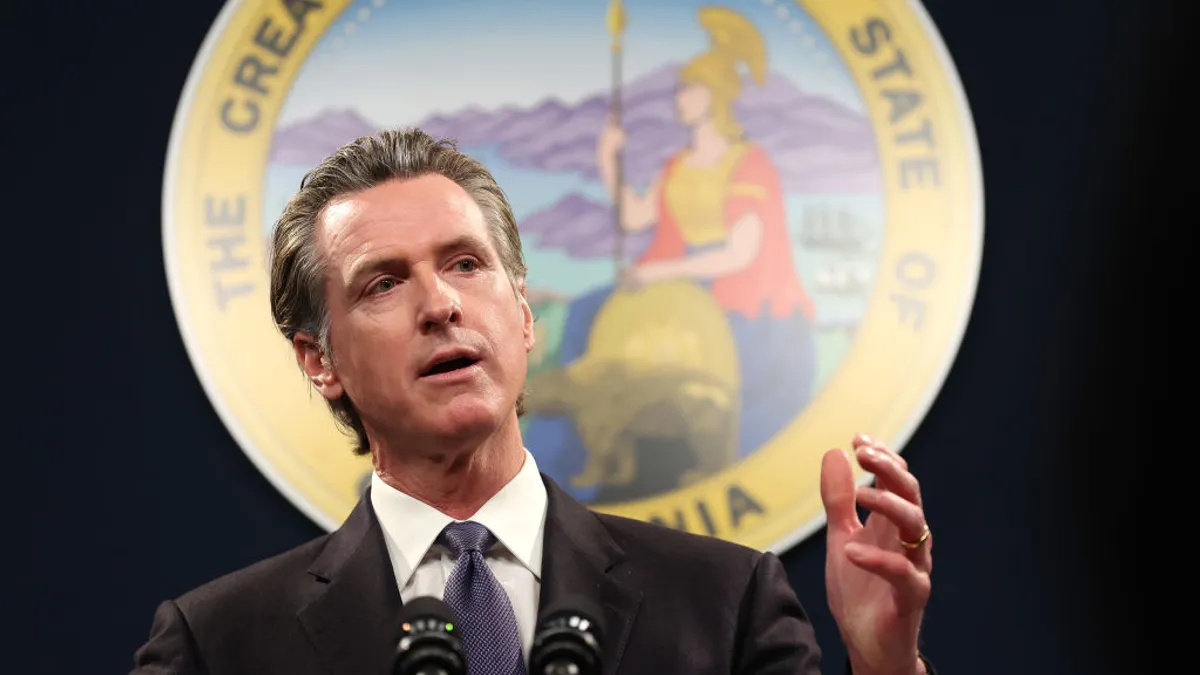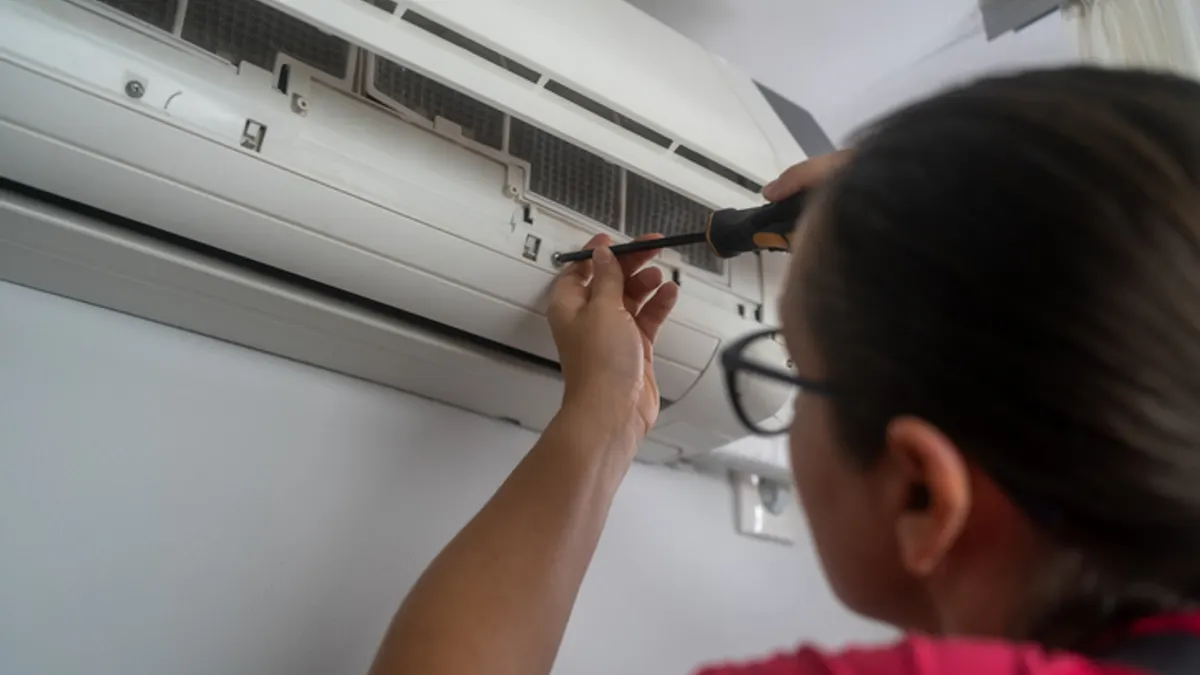Dive Brief:
- California is offering large companies subject to its climate disclosure rule — Senate Bill 253 or the Climate Corporate Data Accountability Act — some flexibility to prepare for compliance deadlines by exercising enforcement discretion for the first year of reporting.
- The California Air Resources Board, the agency tasked with enforcing the state’s climate rules, published an Enforcement Notice on Dec. 5. In the notice, CARB said companies who are required to comply with SB 253 could submit scope 1 and scope 2 greenhouse gas emissions data for 2026 — the earliest reporting deadline under the bill — based on information they “already possessed or [are] collecting at the time this Notice was issued.”
- CARB added it would “not take enforcement action for incomplete reporting against entities” in the first reporting cycle, given the companies “make a good faith effort to retain all data relevant to emissions reporting for the entity’s prior fiscal year.”
Dive Insight:
The California agency said the enforcement discretion will help support companies as they work toward full compliance since emissions data collection and disclosure is a nascent task for some companies that may require some time to prepare for.
“CARB recognizes that companies may need some lead time to implement new data collection processes to allow for fully complete scope 1 and scope 2 emissions reporting, to the extent they do not currently possess or collect the relevant information,” the agency’s Dec. 5 notice said.
However, CARB said its decision is not intended as an interpretation of SB 253’s reporting requirements. The agency encouraged regulated entities to utilize this transition period to “move toward full compliance as quickly as possible.”
KPMG’s U.S. Sustainability Leader Maura Hodge echoed this in an emailed statement to ESG Dive Thursday, noting organizations should use this additional time as a “runway to get their emissions data house in order.”
“CARB’s grace period provides companies with valuable time to build their emissions reporting infrastructure, but don’t mistake this pit stop for a green light to idle,” Hodge said. “The transitional period reflects a practical approach to implementation, yet the underlying mandate is clear: comprehensive emissions reporting is becoming a critical business requirement.”
SB 253 was originally approved by California Gov. Gavin Newsom last October and is estimated to impact more than 5,300 companies operating in California. The law requires companies making more than $1 billion in revenue to publicly disclose their scope 1 and 2 emissions to a reporting organization in 2026. Starting in 2027, companies would then need to begin reporting scope 3 emissions.
The law also requires companies to report their greenhouse gas emissions in a “manner that is easily understandable and accessible to residents of the state,” and requires such public disclosures to be independently verified by a third-party auditor.
CARB’s enforcement notice comes after Newsom signed Senate Bill 219 into law in September, which included a series of amendments to climate bills SB 253 and SB 261. SB 261, not affected by the enforcement notice, requires business entities with revenues exceeding $500 million to publicly disclose their climate-related financial risks and countermeasures.
SB 219 retained the original reporting deadlines laid out in SB 253 and SB 261, with some businesses expected to make disclosures as early as 2026. However, it provided additional flexibility and time for the promulgation of regulations that are to be adopted by CARB, and CARB’s enforcement notice extends that flexibility to companies as well.













